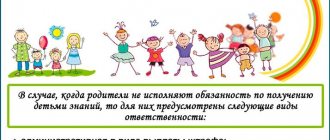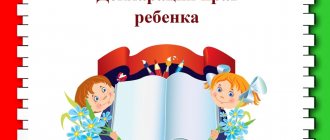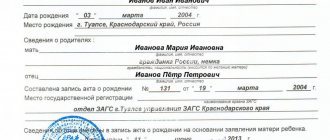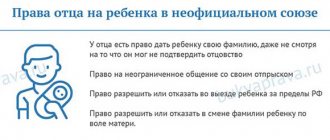Convention on the Rights of the Child
Since international treaties are considered to prevail over Russian legislation, that is, they have priority, the Convention on the Rights of the Child has a primary role in this case. What is this legal act?
The Convention on the Protection of the Rights of the Child is a legal act adopted at the international level, which defines the rights of minors living in the territory of member states. The Convention is recognized as a fundamental legal document, the implementation of which is considered mandatory for all countries without exception that have ratified the international legal act.
The Convention is divided into 54 articles, each of which spells out the specifics of the individual rights of a child from birth until the age of 18 (unless otherwise provided by federal law at the level of the participating countries). In particular, the Convention regulates the foundations that are necessary for children to realize their legal rights and interests, which becomes possible only in the absence of abuse by third parties (cruelty, violence, coercion, etc.)
The Convention was accepted by all participants in international cooperation within the UN, as well as by the Holy See and Palestine. The only country where the Convention has not been ratified is the United States.
As for the Russian legal system, the Family Code of the Russian Federation takes priority. It is this legal act that contains Art. 56, which spells out the basics of the protection of minors, disabled people, orphans, as well as children living in a foster or single-parent family, and the responsibilities of parents aimed at raising and educating minors. In addition, this legal act also contains other norms (which have their own characteristics), which spell out the basics of the well-being of children, disabled people and orphans.
The concept of legitimate interests of children
A child is a person from birth to adulthood (up to 18 years of age). Due to their age, these persons are a socially unprotected category of the population, since they cannot always take care of themselves. To this end, legislators have adopted a number of legal acts regulating legal relations in which minors participate.
The norms of international and national law state that every child has rights and legitimate interests that cannot be violated by anyone. Many countries have ratified acts of international significance and adopted many of their own documents, the main task of which is to protect the rights, freedoms and interests of young citizens.
Organization for the protection of children's rights
The state's social policy is aimed at maximally resolving all problems that may arise in the sphere of family, property and housing relations. This is due to the fact that the relationship between parents and minors arises immediately after the birth of the child. Some relationships are regulated exclusively by moral standards; in other situations, family law takes precedence. A federal or regional law that is adopted in Russia only adds clarification regarding the living conditions of children, disabled people and orphans, the implementation of property and housing transactions, etc.
In addition, the federal act (RF IC), namely Article 56, states that every child in modern conditions, living in a family or outside a family relationship (no matter whether he is classified as an orphan, disabled or incompetent) has the right to protection of rights from abuse on the part of parents, adoptive parents, guardians. According to this legal act, every child can appeal to the authorized body (federal or regional, it does not matter) by filing a statement of claim in order to protect their rights and interests (judicial protection).
The guardianship and trusteeship authorities, as an organization for the protection of the rights of a child under the age of 14, protect his property, housing and personal interests. Upon reaching the age of 14, every child has the legal right to file a claim with the judicial authorities that parents are not fulfilling responsibilities that affect his upbringing and education, as well as if there is abuse of parental rights on the part of the parents.
In addition, every subject (citizen), even if he does not have any relation to the family, is not a participant in property and housing legal relations, must send a statement of claim to the guardianship and trusteeship authorities if he has information that the parents are abuse of parental rights.
The social component of the family legislation of the Russian Federation has priority in that every child (whether he is from the category of disabled people or orphans) is given the right to express his own opinion when resolving property, housing and other important issues, if they, one way or another, affect his interests (upbringing including education).
The concept of protecting the property and housing rights of the child is regulated by Art. 60 of the RF IC, as well as civil legislation. In the event that parents abuse parental rights, including during the sale of real estate, a share in which belongs to a minor, each child (subject of legal relations) has the right to send a statement of claim to the federal judicial body (upon reaching 14 years of age) or the authorized department to resolve any problems that have arisen.
Ways to protect children's rights
In modern conditions, the concept of “cruel treatment of children (including those from the category of disabled people and orphans) by parents or other legal representatives is increasingly emerging in legal practice. That is why methods, measures and problems of child protection are considered one of the key topics that takes priority over other issues that affect social policy.
Unfortunately, the state's social policy has enormous problems that affect the protection of the interests of orphans, disabled people and minor children living in single-parent or asocial families. In particular, as practice shows, preventive work is not carried out to prevent the abuse of parental rights by parents and other legal representatives (this applies to such topics, in particular, as upbringing, education, as well as resolving property and housing issues). Often the subject of legal relations violates the rights of the child, does not fulfill his responsibilities in the family, and also uses prohibited measures and methods aimed at raising the child. Therefore, correcting a difficult situation and solving all problems in the family becomes extremely difficult.
Based on the above, we can conclude that the methods and measures to protect the interests of orphans, disabled children and minors on the territory of the Russian Federation are not in optimal condition, despite their existence. In particular, in modern legislation there is still no clear concept of what can be understood by the protection of the rights and interests of minors.
If we turn to practice, the juvenile justice authorities represent one of the most effective protective mechanisms of childhood, which has its own characteristic features. This federal body is a justice system whose influence primarily favors juveniles. The judicial system assumes that the state should act as a guardian of children (orphans and the disabled, including), which will protect them not only from abuse by parents, but also from harmful influences from society.
The concept of juvenile justice (judicial system) is a federal mechanism that primarily focuses not on the offenses that the subject can commit, but on attention to the personality of the offender. In particular, the ministry directs its measures to protect the rights and education of children (in particular, orphans and disabled people), as well as those who grew up in a dysfunctional family in poor social and housing conditions.
In addition, the social policy of the state has priority in the maintenance and progressive development of civil society, within the framework of which upbringing and education become priority areas. In particular, civil society bodies should take measures and carry out activities that will rehabilitate children who grew up in dysfunctional families, thereby reducing the risks of antisocial and deviant behavior of minors in the future.
Thus, the methods and forms of protecting the rights of the child, as well as the responsibilities of government agencies in this area, are one of the most pressing topics that social policy must address, in particular through official documents (NLA).
Bodies protecting children's rights
The functions of protecting the fundamental rights and interests of children are assigned not to one body authorized to perform this duty, but to an entire system of government agencies. If we turn to the RF IC, namely, Art. 8, then the priority for protecting the rights of the child in an administrative manner is given to the authorized law enforcement agency (whether federal or regional) represented by the Prosecutor’s Office and the Department of Internal Affairs. Moreover, each subject has its own characteristic features and responsibilities for the execution of powers.
The prosecutor's office applies the following measures and methods:
- Presents a statement of claim and supporting documents regarding the deprivation or limitation of parental rights, as well as a resolution to cancel the adoption;
- Provides a statement of claim to the federal court in which it is required to restore the infringed or violated rights of the minor (which may affect the upbringing, education of the child or the issue of living conditions and stay in a dysfunctional family) and the necessary documents for this;
- Has the direct right to be present at the main trials in which proceedings are being conducted regarding the violation of the rights of a minor, etc.
The features and responsibilities that the Ministry of Internal Affairs has are that they are directly involved in the implementation of compulsory measures aimed at selecting children who, for example, lived in a dysfunctional family and did not receive proper upbringing and education, since their parents did not fulfill their direct responsibilities. In addition, the social system of state bodies implies participation in the implementation of protective measures by the Commission on Minors' Affairs. Federal Law No. 120 gives priority to this body the following responsibilities:
- Judicial protection of the rights of the child, including this authorized entity sending to the court a statement of claim and the necessary documents for deprivation of parental rights.
- Implementation of protective measures that contribute to the restoration of the violated rights and interests of the child. In particular, the authorized body (entity) solves the problems of homelessness and neglect, assigning certain responsibilities to itself through preventive measures aimed at the social education of minors.
In addition to the fact that the authorized representative sends the statement of claim to the judicial department, he also prepares the necessary documents for the trial of the problem related to minors.
The concept of “social policy” of the state implies, first of all, the protection of the rights and interests of all citizens of the Russian Federation, especially minor children belonging to the risk category.
Author of the article
Assistance in realizing the legitimate interests of children
As we see, in all legislative documents there is a thesis that it is the state that should in every possible way contribute to the protection of the interests of children. How does this actually happen?
- Assistance to children in the realization of their rights and interests is carried out through government bodies and representatives of these bodies by adopting regulations, conducting methodological and explanatory work with children about their rights and responsibilities.
- Teachers, sociologists, psychologists, and medical workers also participate in the process aimed at ensuring the protection of the rights and interests of children.
- An important role is played by public associations that help children develop skills in applying their legal rights.
- And the most important role in the process of realizing children’s rights is played by parents or their other legal representatives (guardians). It is these persons who help the child independently perform certain actions, taking into account age and scope of legal capacity.
In cases where the rights and legitimate interests of a child are violated, representatives of the minor may go to court. On behalf of the child, statements of claim and other procedural documents are filed by his legal representative (parent, adoptive parent, guardian or representative of the organization in whose care the child is).
Depending on the circumstances of the situation, the guardianship and trusteeship authorities and the prosecutor's office may be involved in the judicial process in which the interests of a minor are affected.










